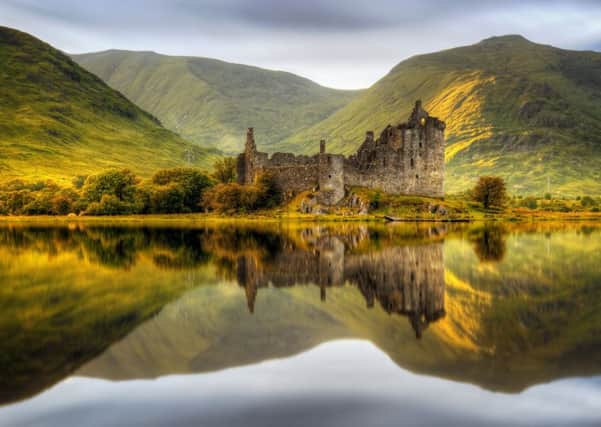Jonny Hughes: Natural capital the true gauge of prosperity


The Scottish Government has given a strong commitment to increase natural capital as one of five national indicators in its economic strategy and Scotland has also become the first nation in the world to publish a detailed report which monitors annual changes in its natural capital assets.
At the World Forum, being staged on 27-28 November, we look forward to once again welcoming hundreds of people from across the globe. This will include foreign government representatives, senior figures from NGOs and international agencies, including the UN, and leading business figures.
Advertisement
Hide AdAdvertisement
Hide AdWith increasing environmental degradation occurring around the planet and the financial instability which accompanies it, there is an increased urgency to protect and account for natural capital in monetary terms and move beyond using Gross Domestic Product as the primary means of measuring the financial success of nations.
This perspective is shared by a wide range of global leaders, from the former US president, Barack Obama, to the ex-secretary general of the United Nations, Ban Ki-moon, and, here in the UK, by the likes of Mark Carney, governor of the Bank of England. He has spoken of the opportunity for businesses who embrace so-called “green finance”.
To help achieve greater buy-in from the corporate world, innovative models have been devised to highlight the financial benefits of natural capital. Insect pollination, for example, is estimated to be worth €153 billion to agriculture globally while the cost of existing ocean asset mismanagement has been set at $428 billion in lost profits by 2050.
The Natural Capital Protocol, which provides a standardised framework to identify, measure, and value impacts and dependencies on natural capital, has also been developed.
As we seek to make progress on greater recognition of and accounting for the value of natural capital, it is encouraging to see that there are already a number of forward-thinking global businesses leading the sustainability charge. One of the companies that has pioneered the use of the Protocol is Kering, owners of Puma, Gucci, Yves Saint Laurent and 18 other luxury brands.
The company has set up an Environmental Profit and Loss account which records its supply chain tiers and their environmental impact. It showed that Kering’s water consumption, for example, was generating environmental dis-benefits to the tune of €80m per year and that land use was impacting 28 per cent of its environmental footprint, costed at over €223 million.
These figures are published by Kering as “externalities”, the costs borne by often the poorest in society, a brave move but also one that makes good business sense. This information has shown, for example, how certain ecosystems from which raw materials are derived are unsustainably managed due to problems such as overgrazing. Natural capital asset depreciation has also enabled the company to establish a link with poorer quality raw materials. Knowing where in the world their impacts and dependencies on the natural environment are helps the company make smarter long-term decisions. It’s a win for society, a win for the environment and a win for its bottom line.
Accounting for natural capital gives businesses several advantages ranging from reduced volatility in supply chains, de-risking of regulatory compliance and easier access to finance. It is therefore unsurprising to see that several major lenders, including National Australia Bank, are increasingly requiring borrowers to understand natural capital risks before providing finance.
Advertisement
Hide AdAdvertisement
Hide AdMany businesses are already on-board with the importance of accounting for their impact on natural capital. I believe the discussions to come at next month’s World Forum in Edinburgh will help entice those which are still to join this journey.
Jonny Hughes is Chair of the Scottish Forum on Natural Capital and Chief Executive, of the Scottish Wildlife Trust, www.naturalcapitalforum.com